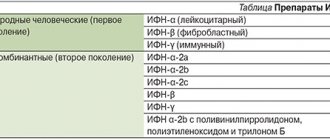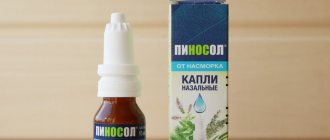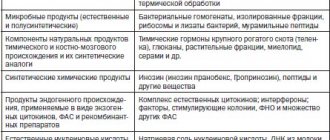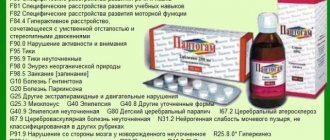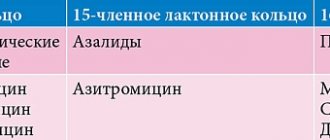Compound
| Homeopathic syrup | 100 g |
| active substances: | |
| Pulsatilla (pulsatilla) C6 | 0.95 g |
| Rumex crispus (rumex crispus) C6 | 0.95 g |
| Bryonia C3 | 0.95 g |
| Ipeca C3 | 0.95 g |
| Spongia tosta C3 | 0.95 g |
| Sticta pulmonaria (sticta pulmonaria) C3 | 0.95 g |
| Antimonium tartaricum C6 | 0.95 g |
| Myocarde (myocardium) C6 | 0.95 g |
| Coccus cacti (Coccus cacti) C3 | 0.95 g |
| Drosera (drosera) MT | 0.95 g |
| excipients: Tolu syrup - 19 g; Polygala syrup - 19 g; ethanol 96% - 0.34 g; caramel - 0.125 g; benzoic acid - 0.085 g; sucrose syrup - up to 100 g |
Stodal
Stodal is a homeopathic syrup from a French pharmaceutical used for symptomatic (aimed at eliminating the symptoms of the disease, not its cause) treatment of cough of various etiologies.
Cough, as you know, is a protective reaction of the body, expressed in a sharp exhalation and ensuring cleansing of the bronchial tree from foreign particles, all kinds of pathogens and sputum. At the same time, cough is not an independent disease: in the vast majority (about 90%) of cases, it signals the presence of some kind of infection in the respiratory tract. The latter can be localized in the upper or lower respiratory tract. Another cause of cough is an inflammatory process in the ENT organs (rhinitis, pharyngitis, laryngitis, sinusitis, adenoiditis). We should not forget about such a formidable etiological factor as bronchial asthma. Treatment of cough (or rather, the disease that caused it) should be carried out under medical supervision and be comprehensive, i.e. aimed at both eliminating symptoms and eliminating the cause of the pathological process. The key method of treating cough caused by ARVI is measures to reduce viscosity and evacuate mucus from the respiratory tract. Today, clinicians have a wide choice of drugs that help thin sputum (mucolytic drugs) and expectoration. If we talk about a “dry” (without sputum) cough, then, as a rule, it is “nipped in the bud,” i.e. suppress the cough reflex using centrally acting antitussives.
A reasonable alternative to the above groups of drugs may be homeopathic medicines, such as stodal syrup. The pharmacologically active components included in its composition are effective against various types of cough in both adults and children, including the “dry” cough characteristic of ARVI.
Thus, emetic root “works well” for “dry” spastic (to the point of nausea and vomiting) cough, Mexican cochineal is effective for coughing attacks with thick sputum that is difficult to separate, curly sorrel and white sorrel are used for “dry” cough, potentiated by talking and being in the frosty air. If there are a number of respiratory symptoms (unproductive barking cough, hoarse voice, drying of the nasopharyngeal mucosa), dried sea sponge is used - another ingredient in stodal. Dry coughing, inflammation of the trachea, dry mucous membranes, and difficulty in nasal breathing are treated with pulmonary moss, which also has a place in the plant-animal “punch” of stodal. The deliberate “naturalness” of the drug excludes clinically significant adverse reactions, which is often the “sin” of traditional antitussives of allopathic medicine. At the Clinic of ENT Diseases of the Pediatric Faculty of the Russian State Medical University, a study was conducted on the effectiveness of Stodal in comparison with classical antitussive pharmacotherapy. Based on the results obtained, it was concluded that stodal can be successfully used as monotherapy to eliminate cough. The optimal duration of treatment with Stodal for a normal cough is 5 days, for a chronic cough - 9. No adverse reactions were observed while taking the drug. The pleasant taste of the syrup was noted as a positive factor contributing to increased adherence to treatment.
Regimen and frequency of dosing of the drug: 15 ml 3-5 times a day (adults), 5 ml 3-5 times a day (children). The required amount of syrup is measured using a cap. The duration of treatment is determined by the doctor. Please note that for every 15 ml of syrup there is 206 mg of ethanol. Stodal can be combined with other medications.
Can the medicine harm the unborn baby?
Many women are interested in the question of whether this drug can be used during pregnancy. According to experts, Stodal syrup does not affect the fetus in the womb, but only if the woman followed the correct dosage and was treated following all the doctor’s instructions. However, it is worth considering the fact that many children at birth may have an allergic reaction to certain drugs. The main reason for this is the excessive use of certain substances by the expectant mother. Therefore, some plant components that are part of the syrup can lead to allergic reactions in a newborn baby. However, if the expectant mother was treated correctly and followed the dosages prescribed by the doctor, then this will not lead to problems in the future.
Indications for use
It is difficult to say which cough is more dangerous: wet or dry. Often the baby first suffers from dryness and then from moisture - this means that the healing process is going in the right direction. With a wet cough, the child suffers from sputum, which constantly accumulates in the lungs and irritates the mucous membrane, causing involuntary coughing and expectoration. When dry, the baby experiences discomfort, feels dryness and irritation in the larynx.
If you do not take any action, the cough can develop not only into chronic, but also into painful. Ideally, you should consult a doctor immediately. If this is not yet possible, then the first steps need to be taken:
- reduce the viscosity of sputum;
- cleanse the bronchi;
- prevent fluid from stagnating in the lungs;
- Make sure that inflammatory processes do not start.
Stodal syrup will help with this. It has expectorant and bronchodilator properties.
When compared with other medicines, which are often intended only for one type of cough, the presented homeopathic remedy can be called universal, because it is suitable for both wet and dry coughing. It is recommended to give young children exactly as much syrup as the doctor prescribes. Usually this is no more than 5 ml of syrup and no more often than once every 5-8 hours.
What analogues are there for children?
The medicine has a unique composition, so it has no complete analogues. However, there is a huge variety of cough medicines on the market, both homeopathic and conventional, many of which
The first include:
- Barberry Comp IOV-Baby;
- Suprima-Broncho;
- Pulsatilla compositum;
- Spongia tosta;
- Ipeca;
- Nux Vomica-Homaccord, etc.
Due to their high efficiency and safety, such classic drugs as:
- Ambroxol (Ambrohexal, Ambrobene, Lazolvan);
- Acetylcysteine (ACC, Fluimucil);
- vegetable Pectolvan, Herbion, Prospan, Dr. Theis syrups;
- Erespal;
- Sinecode;
- Bromhexine, etc.
Indications for use
The instructions for the medicine recommend using this remedy in the following cases:
- with regular attacks of dry (non-productive cough), if they “pursue” the patient for at least 2-3 days;
- when a wet cough bothers the patient for a week, and the body does not respond to other mucolytic (expectorant) drugs;
- for the symptomatic treatment of cough - a companion to various respiratory diseases (in this situation there are other signs - runny nose, fever, weakness in the body);
- in order to combat cough - a consequence of damage to the body by a viral infection.
Instructions for use
The drug Stodal is harmless and therefore has no age restrictions. It is prescribed to both adults and children from a very early age.
The dosage of the drug for adults is 15 ml of syrup at a time with an interval of at least eight hours. For acute symptoms and before relief begins, you can use the syrup up to six times a day.
For children, Stodal syrup is prescribed in a dosage of 5 ml at a time every eight hours. On the first day, you can increase the time of taking the drug up to six times a day.
The duration of treatment depends on the form of the disease and the individual characteristics of the patient’s body. The duration of the course is prescribed by the attending physician in each case individually.
During pregnancy and lactation, it is worth considering that the drug contains a small amount of ethyl alcohol. Each of the components can cause an allergic reaction under certain characteristics of the body.
But still, doctors very often prescribe Stodal to pregnant women in any trimester of pregnancy. The dosage for a pregnant woman is the same as for any adult patient - 15 ml at a time up to five times a day. It is worth considering that this drug is prescribed only for severe and debilitating coughs that require mandatory treatment.
If coughing occurs on its own, then taking Stodal can have the opposite effect and only worsen the cough and increase its duration.
Stodal is practically harmless, made mainly from herbal ingredients, so it is often prescribed to women during lactation. Due to the fact that the syrup does not have a pungent odor, the risk of baby weaning is eliminated. The syrup does not affect the properties of breast milk and is not dangerous for the baby. The drug is used in combination with other medications that help treat influenza and ARVI.
For children, Stodal is prescribed in case of cough of various etiologies. The syrup is used in combination with other drugs, and also has a positive effect in the treatment of flu and colds. Stodal has a strong anti-inflammatory effect, therefore it eliminates symptoms such as headache, lacrimation, and elevated body temperature. The drug relieves inflammation in the respiratory tract, thereby stopping irritation, and then removes mucus from the lungs.
It is imperative to take into account that any component of the drug can cause an allergic reaction in a child. Therefore, at the first appearance of a rash or irritation on the skin, you should stop taking the drug and consult a doctor.
You should not start taking Stodal on your own, without a doctor’s prescription.
The course and duration of treatment is prescribed by the doctor individually for each patient.
Features of the drug
Stodal is recommended for the treatment of dry cough in children.
That is why the drug is available in the form of syrup. The drug is packaged in 200 ml dark glass bottles (ultraviolet protection). It is important to know that the composition includes ethyl alcohol, various sweeteners and preservatives. You need to be as careful as possible if you have an individual intolerance to chemical components.
Limitations to treatment
Stodal rarely causes side effects. Those at risk for contraindications include allergy sufferers, children with fructosuria (hereditary disease), sugar-isomaltase deficiency (problems with the breakdown of sucrose) and glucose-galactose malabsorption (pathology of the gastrointestinal tract). It is not recommended to treat cough with this remedy when diagnosing diabetes mellitus and dangerous liver diseases.
Instructions for use
Stodal’s description states that the syrup can be given even to infants. Many experts do not agree with such recommendations, since the drug contains ethyl alcohol, which is prohibited for children under 2 years of age. The manufacturer's justification can be considered the minimum dosage of such a component in a single dose of the drug (0.069 g).
According to the instructions, you need to take 5-7 ml of syrup every 6-8 hours. In reviews from doctors, the most common recommendation is that it is best to perform effects on the bronchi after eating. Thus, the load on the liver and other gastrointestinal organs can be significantly reduced. Some pediatricians allow infants to be treated with Stodal. In order to eliminate a dry, unproductive cough in a baby, it is necessary to reduce the dosage to half a teaspoon 3-4 times a day.
Customer Feedback:
Storage and price
Stodal can be purchased at any pharmacy without a prescription. The average cost of the drug is 250-300 rubles, depending on the region of the country. Shelf life – 5 years (after opening six months). Analogues of the drug are “Lazolvan”, “Erespal”, “Ascoril”.
Features of the use of the substance
During pregnancy and breastfeeding, the drug is prescribed very carefully. Stodal's reception is carried out under the strict supervision of a doctor
The minimum dosage of the drug is calculated that will not harm the health of the mother and child.
The drug is prescribed with caution to persons with signs of alcohol dependence and in a state of alcohol intoxication. For patients with liver dysfunction and epilepsy, Stodal is prescribed only on the recommendation of a doctor.
For patients with impaired liver function and epilepsy, Stodal is prescribed only on the recommendation of a doctor.
Patients with diabetes should definitely take into account that Stodal contains syrup and sucrose. During treatment with Stodal syrup, you can drive a car and operate machinery that requires increased concentration and attention.
Indications for use
For what cough do you take syrup? The mixture contains mainly plant extracts. Thanks to the large number of ingredients and their competent combination, the syrup can be taken for any type of cough.
Most often, the medicine is prescribed for mild colds in childhood. Thanks to the combination of active ingredients, even small doses of the drug will help alleviate the baby’s condition and cope with inflammatory processes:
- Some components - pulsatilla, rumex crispus - inhibit the activity of cough receptors in the brain, so the drug can be taken for dry cough.
- Other ingredients, such as bryonia, effectively thin mucus. It is these properties that allow the drug to be used for wet coughs.
- The medicinal plant extracts ipecac and sponga toast contain alkaloids similar in their effects to antispasmodics. Thanks to this, Stodal for children effectively eliminates muscle spasms and reduces attacks of shortness of breath.
